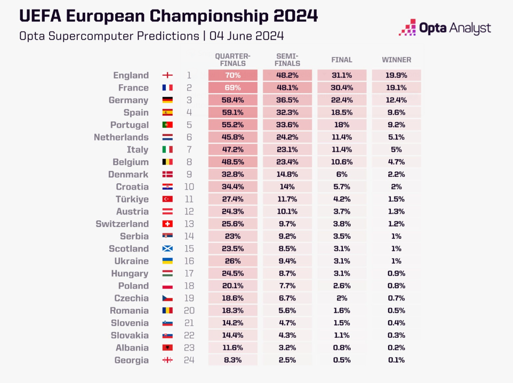Whether or not you’re a football fan, it’s safe to say that the UEFA European Championships coverage is infiltrating popular culture in a big way right now and football chat is pretty difficult to avoid. The Learning People blog is no exception; we’re looking at the role of Big Data and AI in football and how it’s going to impact the Euros.
A brief history of data in football
Data analytics in football isn't a new concept but it’s ramped up exponentially in the past 30 years and it feels like we’re constantly discovering new ways to strategise and enhance play. FIFA didn't start counting assists until 1994, which seems quite recent in the grand scheme of football history. The real revolution began in the 1990s when clubs like Manchester United started using analytics to gain a competitive edge. Fast forward to today, and the use of data in football has become ubiquitous, transforming how the game is played, analysed, and experienced by fans.
Enhancing player performance with data
Modern footballers are now equipped with devices that measure various aspects of their physical performance. These devices track movement, workload, fatigue levels, and other critical metrics. The data collected is used to optimise performance, providing insights that help in creating personalised training plans. For example, by analysing this data, coaches can tailor training sessions to individual players' needs, enhancing their strengths and addressing their weaknesses.
In addition, real-time data insights are delivered directly to coaches, allowing them to predict potential injuries and take preventative measures. This predictive analysis helps in maintaining players' fitness and availability throughout the tournament, which is crucial for any team aiming to win the Euros.
Tactical advantages through data analytics
One of the most significant advancements in football analytics is the use of Expected Goals (xG). This metric measures the quality of a player's shots and the probability of them resulting in goals. Algorithms consider factors like distance from the goal, angle of the shot, and the type of assist leading to the shot. Coaches use xG data to make informed decisions about player positioning and attacking strategies during game preparation.
Additionally, heat map data visualisations provide a comprehensive view of distance covered and movements on the pitch. These visualisations help coaches understand the flow of the game and adjust their tactics in real-time to increase their chances of winning. The ability to adapt strategies based on live data is a game-changer, giving teams an edge over their opponents.
AI transforming the fan experience
AI is not just revolutionising how the game is played; it's also enhancing the fan experience. AI is being used to streamline ticketing processes, making it easier for fans to purchase tickets and find the best seats. Furthermore, AI-driven models can predict match outcomes; according to Opta Analyst, England has a 19.9% chance of winning the tournament.

In conclusion, data and AI are not just buzzwords in the world of football; they are essential tools that are shaping the future of the sport. As the Euros continue to engulf office chats around the world, the teams that leverage these technologies most effectively will likely find themselves with a significant advantage.
Intrigued by how data analytics is transforming football and countless other industries? Take the next step in your career by enrolling in our comprehensive Data Analytics course, Data+. Equip yourself with the skills to harness the power of data and AI and become a game-changer in your field.
